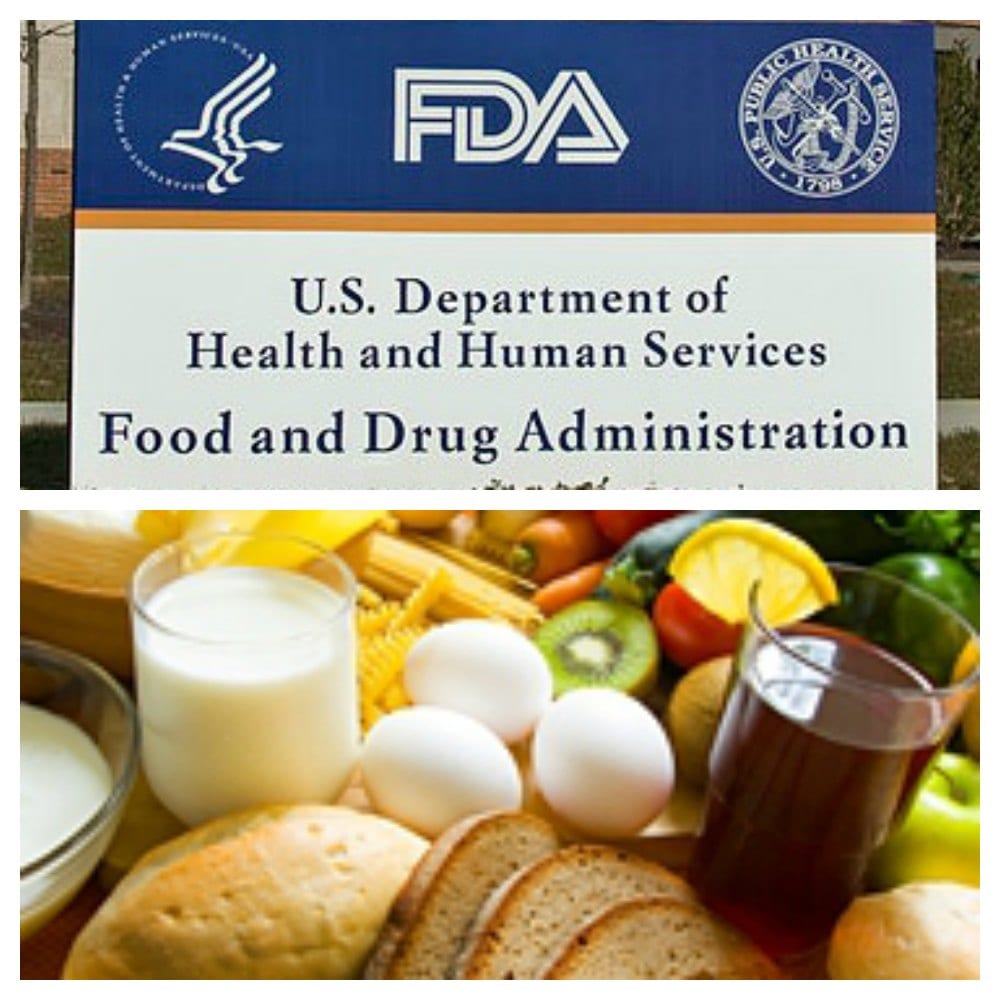 FDA photo credit: Wikimedia Commons |
In FDA’s words, the Food Safety Modernization Act (FSMA) “directs FDA to build an integrated national food safety system in partnership with state and local authorities explicitly recognizing that all food safety agencies need to work in integrated ways to achieve public health goals.”1 To FDA “integrate” means dictating to the states what their food safety laws will be. FDA wants “uniformity” and to have the laws governing interstate and intrastate commerce be the same.
FDA has long tried to co-op state food regulation through cooperative agreements with and grants to state regulatory agencies; FSMA enables it to significantly advance this agenda. FSMA specifically calls for preemption of state regulation or laws governing the transportation of food in intrastate commerce,2 and FSMA expanded authority given to the agency under the 2002 Bioterrorism Act to require that firms operating solely in intrastate commerce comply with mandates to have food safety plans for their businesses. The 2002 law required that “any facility engaged in manufacturing, processing, packing or holding food for consumption in the United States be registered with the Secretary of the Department of Health and Human Services (DHHS).3 The Hazard Analysis and Risk-based Preventative Controls (HARPC) section of FSMA calls for the owner, operator, or agent of a facility to develop and implement a food safety plan to prevent the adulteration and misbranding of food.4 Any “facility” that is required to register with DHHS must also comply with HARPC even if that “facility” is operating only in intrastate commerce.
Firms that are not required to register or have gross sales under one million dollars are exempt from HARPC, but the problem for those businesses is that FDA has indicated that they will still be subject to federal regulations governing Current Good Manufacturing Practices (CGMPs).5 CGMPs include requirements for physical facilities, equipment, and sanitation that are part of a one-size-fits-all regulatory scheme. Unlike HARPC, there are no exemptions from CGMPs.6 FDA believes CGMPs apply to firms operating only in intrastate commerce.
What has happened in North Carolina shows how CGMPs can be a business killer. Until recently, farmers slaughtering and processing rabbits could do so in the open air with minimal expense; on-farm rabbit processing has an excellent track record for food safety. Then, however, the North Carolina Department of Agriculture issued a regulation adopting the federal CGMPs7 and applied it to rabbit processing; as a result producers wanting to process rabbits on the farm must do so in an enclosed facility, substantially driving up costs for those who can afford it. North Carolina’s adoption of the CGMPs is unrelated to FSMA but FDA’s view is that it can impose those requirements directly on businesses only in intrastate commerce.
Another weapon FDA has at its disposal to hurt the local food system is the FDA Food Code. The food code is a model one-size-fits-all law governing retail food establishments; all 50 states have adopted the food code in one form or another. The food code is voluntary, but the FDA is trying to make it mandatory by entering cooperative agreements with state agencies under a funding opportunity titled “Advancing Conformance with the Voluntary National Retail Food Regulatory Program Standards (VNRFRPS).8 A stated goal of the program is to “encourage widespread, uniform and complete adoption of the FDA Food Code.”9 A complete adoption means that little local food production and distribution would escape the requirements of the regulatory-heavy food code.
What happened in the 2016 Virginia legislative session is an example of how FDA is controlling state food regulation through the food code. A bill that would have legalized the unregulated sale of potentially hazardous baked goods (foods subject to time and temperature control, e.g. pumpkin pies) was killed after the Virginia Department of Agriculture and Consumer Services (VDACS) informed members of a legislative subcommittee that the bill was in violation of the FDA Food Code. The bill was initially passed by the same subcommittee one week earlier.10 Virginia has adopted the food code which calls for regulation of potentially hazardous food such as baked goods. In 2015, VDACS received $70,000 from FDA under the “Advancing Conformance” funding opportunity. These cooperative agreements violate principles of federalism and separation of powers, amounting to unelected bureaucrats making law.
FDA needs the help of state agencies to implement and enforce the FSMA requirements; the agency does not have close to the manpower needed to enforce FSMA on its own. FDA will be entering into more cooperative agreements than ever to get state help on FSMA;11 states will be spending more of their time enforcing federal law and less enforcing their own laws. State agencies will be increasingly conscripted by the federal government.
There are numerous ways to fight back against FDA’s attempts to control all food regulation through FSMA and other means; these include cutting FDA’s funding for FSMA implementation, state laws establishing stricter oversight and standards for cooperative agreements between FDA and state agencies, state food freedom bills legalizing unregulated producer to consumer direct commerce, and piece meal amendments to FSMA. If this doesn’t happen, the industrial food system will further consolidate its control over the food supply; imports will sharply increase; food security, self-sufficiency and food production will be a pipedream; and the local food system won’t come close to meeting the demand for its products.
FTCLDF is committed to opposing the federal takeover of state food regulations.
Footnotes
1 FDA. Funding Opportunity Title: Advancing Conformance with the National Retail Food Regulatory Program Standards.
2 21 USC 350e: Sanitary Transportation Practices. Posted online at http://uscode.house.gov/view.xhtml?req=(title:21%20section:350e%20edition:prelim
3 21 USC 350d: Registration of Food Facilities. Posted online at http://uscode.house.gov/view.xhtml?req=(title:21%20section:350d%20edition:prelim)
4 21 USC 350g: Hazard Analysis and Risk-based Preventive Controls. Posted online at http://uscode.house.gov/view.xhtml?req=granuleid:USC-prelim-title21-section350g&num=0&edition=prelim
5 21 Code of Federal Regulations 117 Part B
6 78 FR 3646. Current Good Manufacturing Practice and Hazard Analysis and Risk-based Preventative Controls for Human Food (proposed HARPC rule). January 16, 2013.
7 North Carolina Department of Agriculture & Consumer Services. Rabbit Processing. Posted at www.ncagr.gov/fooddrug/food/rabbitprocessing.htm
8 FDA.
9 Ibid.
10 Pete Kennedy, Esq. Who Makes Law in Virginia? FDA. February 10, 2016. Posted online at www.farmtoconsumer.org/blog/2016/02/10/who-makes-law-in-virginia-fda
11 Notice of Grant Award Research Demonstration Cooperative Agreements Issue Date 06/10/2015. Grant Number: 4U18FD004867-04
YOUR FUND AT WORK
 Services provided by FTCLDF go beyond providing legal representation for members in court cases.
Services provided by FTCLDF go beyond providing legal representation for members in court cases.
Educational and Political Action Services also provide an avenue for FTCLDF to build grassroots activism to create the most favorable regulatory climate possible. In addition to advising on bill language, FTCLDF supports favorable legislation via action alerts, social media outreach, and the online petition service.
You can help FTCLDF by becoming a member or donating today.

 Anyone wanting to make a contribution to support the work of FTCLDF can make a donation online or send a check to:
Anyone wanting to make a contribution to support the work of FTCLDF can make a donation online or send a check to:
FTCLDF
8116 Arlington Blvd, # 263
Falls Church, VA 22042
Prefer to make a tax-deductible donation? Donate online at bit.ly/NFG4FTC.
You may also contact us by email at [email protected] or call 703-208-FARM (3276). Thanks for your support.